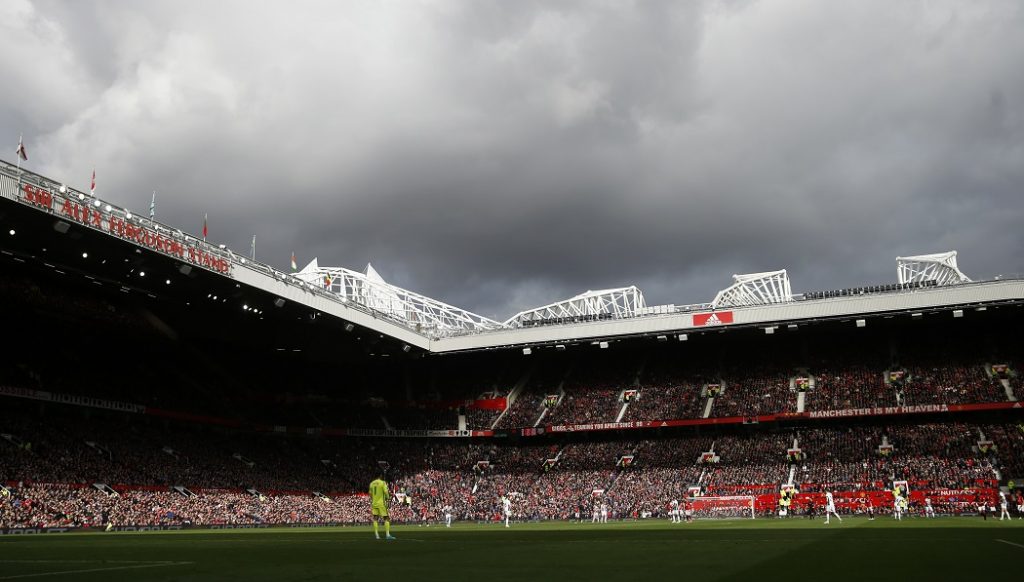Are Manchester United and Tinder a match made in heaven?
August 10, 2017
It has been a crazy week for football. Who could have predicted that any club, let alone one playing in the French Ligue 1, could afford to pay Neymar’s astronomical buy-out clause and wages?
That’s football and when it comes to the game’s most prized assets, there is no shortage of parties willing to pay a premium. This is true for players as it is for clubs and if reports are to be believed, Manchester United are about to make waves of their own, off the pitch.
If what the papers say is true, Manchester United are in discussions with Tinder about the dating app becoming one of its top partners and featuring on the sleeve of the club’s shirt. The news has been met with reactions ranging from comedy to bemusement to cynicism.
Should the parties reach an agreement, rumoured to be in the region of £12 ($15.6) million per annum, Manchester United will become the tenth Premier League club to secure a sleeve sponsor. The shirt will become the most lucrative piece of fabric in world sport, already receiving £50 million per annum from Chevrolet and another £75 million from Adidas.
FT: Real Madrid 2 #MUFC 1. A valiant second-half effort but a narrow #SuperCup defeat in Skopje. pic.twitter.com/MOSsoRBsmg
— Manchester United (@ManUtd) August 8, 2017
On the face of it, one must wonder what one of the most historic global sporting institutions has in common with a dating app often associated with casual flings. Perhaps more than meets the eye.
No club in world football has done a better job in turning its rich history and on the field success into commercial revenue. With a global fan base claimed to be in the region of 650 million, Manchester United are not just a popular football team – they’re a marketing power house. Even if that number is exaggerated, it’s still fair to say that the club is one of the most followed on the planet.
If someone suggested a few years ago that Manchester United, the club of Busby, Charlton and Ferguson, would contemplate putting a dating app on its shirt, the news would be met with ridicule. But that goes to show how much can change in such a short space of time. Tinder was only founded in 2012 and today it’s valued almost as much as Manchester United. Yes, let that sink in for a minute.
So to understand why the world’s most valuable sports team may swipe right on Tinder, it’s important to look beyond the surface.

For Tinder, this is clearly part of a strategy to polish its image while embarking on an aggressive international expansion. Already one of the world’s biggest dating apps with over 50 million users, Tinder wants to capture a lion’s share of the online dating market estimated to be worth £1.8 ($2.4) billion by 2021 in Europe and China alone.
If that’s the aim, then Tinder can do worse than partner with a football club whose fans in those markets number in the hundreds of millions. Should the match happen, Manchester United fans can expect some incentive offers to download Tinder.
But there is likely more to this than getting Manchester United fans to start looking for love on their mobiles. This is about a hugely successful tech company looking to leverage its unique ability to connect individuals and groups based on common points of interest.
No more getting lost in translation. “Tinder” is now an official word in the Duden dictionary pic.twitter.com/r4yaSsQeFm
— Tinder (@Tinder) August 9, 2017
Which brings us to what’s in it for United, other than another £12 ($15.6) million per annum in their coffers and bragging rights over their neighbours. The answer is a lot more than a cheque.
Tinder is available in 30 languages and in 194 countries. Its users, a large proportion of whom are the ever elusive millennials, spend a whopping 1.5 hours a day on the platform. Partnering with Tinder won’t convert these millennials into Manchester United fans or get them to spend a similar amount of time following the club’s news.
Where Manchester United does benefit is from partnering with a company that understands behavioural patterns of a demographic the club is desperate to reach and applying Tinder’s successful formula to create a more connected community of fans. Far-fetched? Don’t be so sure.
Football fans and sports fans at large love communal aspects of following their teams. One only has to look at how engaged football fans are on social platforms to understand their desire to feel part of the community. Most of these fans live nowhere near the clubs they follow so it’s difficult to maintain their attention and engagement.
It’s almost time for @PremierLeague football to return to Old Trafford!
Show us your #RedArmy pics of how you’re getting ready for Sunday. pic.twitter.com/TXDycxSWyJ
— Manchester United (@ManUtd) August 10, 2017
Tinder can connect fans wherever they happen to be in the world, meaning that you’re only ever a swipe away from meeting fellow fans, to watch a game or just hang out. Tinder Social is experimenting with this now and it’s easy to see how this concept can be easily applied in the fan environment.
This, of course, is all hypothetical but it’s where partnerships should be moving to. For far too long, sports rights holders have been out selling inventory without thinking of how their sponsors – many of whom are some of the most successful businesses in the world – can be true strategic partners.
We will soon find out if this is just a financial transaction or an example of innovation in sport sponsorship. Let’s hope it’s the latter.
READ MORE: The Football Broadcast Bubble – are we seeing a change in commercial attitude?

Do you want to contribute to iSportconnect? Click here to get involved!

